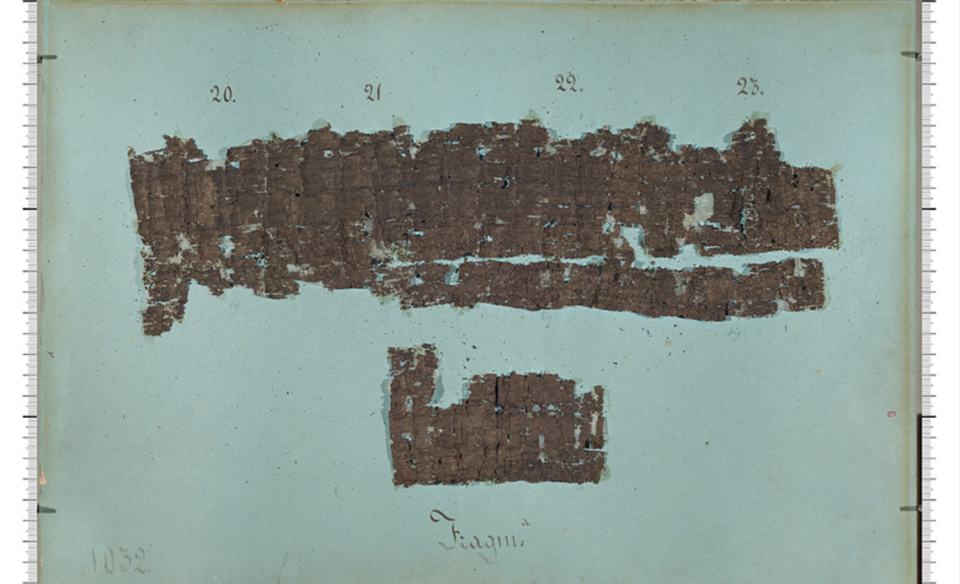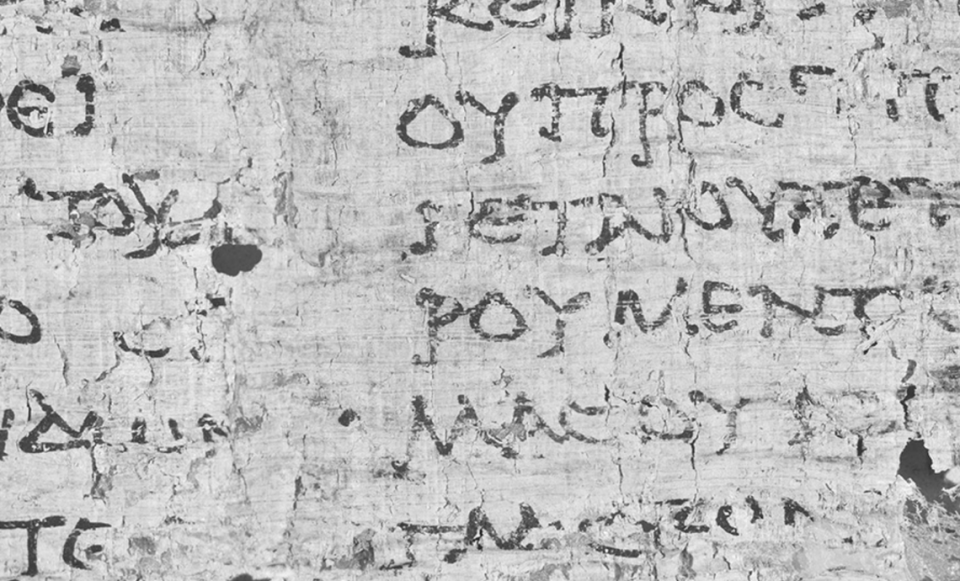Ancient scroll charred by volcanic eruption reveals what Plato did in his final hours
- Oops!Something went wrong.Please try again later.
For centuries, a set of ancient papyrus scrolls discovered at Herculaneum has puzzled archaeologists. Damaged by the famed eruption of Mount Vesuvius in 79 A.D., the scrolls had remained inscrutable — until now.
Using a groundbreaking, noninvasive technique, Italian researchers have deciphered over 1,000 words, or about one-third of the text, from one of the scrolls, according to an April 23 news release from the University of Pisa.
The newly decoded passages reveal previously unknown details about the life and death of one of the world’s most renowned philosophers: Plato.
Uncover more archaeological finds
What are we learning about the past? Here are three of our most eye-catching archaeology stories from the past week.
→ Massive 2,200-year-old tomb with grand interior unearthed in China
→1,000-year-old weapon — the first of its kind — found sticking out of grave in Spain
→ Workers unearth steelworks at medieval castle in UK — and find someone's 'hidey-hole'

The scroll, which documents the history of Greek philosophy, states that Plato was sold into slavery on the island of Aegina around 400 B.C. Previously, it was believed he had become enslaved in 387 B.C. in Sicily
The newly deciphered text also dishes out the details of the moments leading up to Plato’s death around 347 B.C.
The scroll says he spent his last evening listening to a musician, though he criticized her rhythmic abilities, according to The Guardian and the Independent. According to ancient sources, he died hours later in his sleep, or perhaps at a wedding feast.
In addition, the papyrus scroll provides the exact location of Plato’s burial — which, up until now, had remained unknown.
He was laid to rest in a private garden at the academy in Athens near a sanctuary to the Muses, patron goddesses of the arts.

The content of the ancient scroll — found in the 18th century in a Herculaneum villa believed to have been owned by a relative of Julius Caesar — also sheds light on the Roman preoccupation with all things Greek, Corriere della Sera, an Italian newspaper, reported.
“The Romans were incredibly interested in ancient Greek philosophy,” Jane Draycott, a Roman historian at the University of Glasgow, told McClatchy News.
Some of them practiced the Greek philosophical traditions of Stoicism and Epicureanism, the study of which was a key part of Roman education.
“The ancient equivalent of going on a Grand Tour and to university for wealthy Roman young men was going to Greece to spend time in Athens with philosophers,” Draycott said.
This is not the first time ancient texts found at the Herculaneum villa have been deciphered using new technology.
In February, researchers used machine learning to partially decode another scroll, which was revealed to describe a philosophical guide to enjoying life, according to previous reporting from McClatchy News.
Google Translate was used to translate a news release from the University of Pisa and an article from Corriere della Sera.
Olive oil jar — dating back 1,800 years — hid quote from ‘extremely popular’ Roman
‘Rare’ statue sat hidden in dried-up pond at 800-year-old temple — until now. See it
Hidden ancient phallus carving discovered at Roman fort in United Kingdom — again

